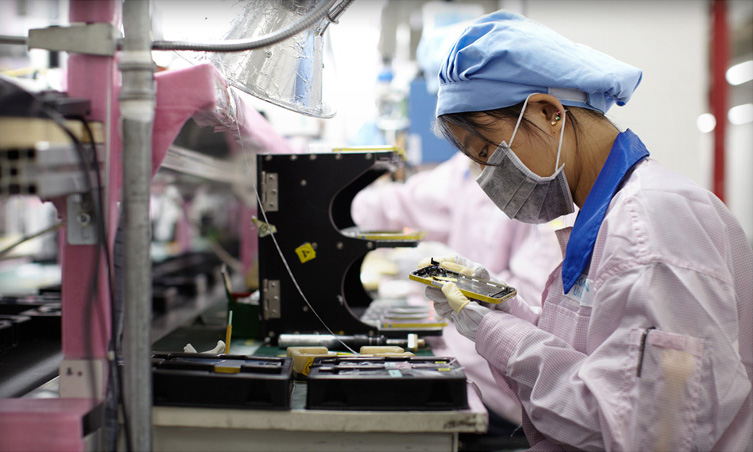
How An Association Got Apple Serious About Labor Issues
As reports hit Western media sources about the labor practices used by Apple's Asian suppliers, the company worked closely with the Fair Labor Association to improve its standards.
When Apple grew big, questions about its supply chain did too.
In recent years, the company, which has used Chinese supply chains to help create its iPhones, iPads, and laptops, has faced a series of negative reports—including those of worker suicides at the company’s Foxconn plants in China—that have marred the company’s squeaky-clean image.
When the company decided to double down on efforts to improve its labor processes, it didn’t work on these problems by itself. It joined the Fair Labor Association (FLA).
“At Apple, we care just as much about how our products are made as we do about how they’re designed,” the company said in a recent progress report [PDF]. “We know people have very high expectations of us. We have even higher expectations of ourselves.”
More details:
We go deep in the supply chain to find [abuse]. And when we do find it, we ensure that the underage workers are taken care of, the suppliers are dealt with.
Apple joins up…: In January 2012, facing pressure from a series of critical reports—from both The New York Times and a since-discredited piece on NPR’s “This American Life” by monologuist Mike Daisey—Apple joined FLA in an effort to improve its suppliers’ labor practices. “We welcome Apple’s commitment to greater transparency and independent oversight, and we hope its participation will set a new standard for the electronics industry,” said the association’s president and CEO, Auret van Heerden, at the time.
…and steps up its game: With Apple working with the association on plant inspections, the company has made significant strides to improve working conditions at its supplier factories. In 2012, Apple reported conducting 393 separate audits of its factories, a 72 percent increase from the previous year, and made efforts to increase pay, prevent use of underage laborers, and limit work hours to 60 per week. Now, the company has turned its attention to the smaller suppliers that often provide parts to Foxconn and other direct suppliers but face less oversight. “We go deep in the supply chain to find [abuse],” Apple senior vice president of operations Jeff Williams said. “And when we do find it, we ensure that the underage workers are taken care of, the suppliers are dealt with.”
FLA’s critics: Some critics say efforts on behalf of Apple’s workers don’t go far enough and question FLA’s independence as a watchdog organization, noting that it is partly funded by the companies it monitors. The Economic Policy Institute has been particularly critical of the FLA’s reports on Apple’s improvements, saying it isn’t focused on the right metrics. “In contrast to the FLA’s glowing assessment, improvements in working conditions at Foxconn have in most cases been modest, fleeting, or purely symbolic, while some key reform pledges have been broken outright,” the nonpartisan think tank claimed.
While both FLA and its critics agree that more work needs to be done, employees of the inspected Foxconn plants have noticed significant process improvements.
“When I first joined the company, the management style was militaristic, very strict,” Ma Jingwei, an assembly line worker, told American Public Media’s “Marketplace.” “In the past year, our managers are becoming friendlier and we often go on planned activities together.”
How can associations help improve corporate responsibility efforts? Let us know your thoughts in the comments.
(Apple handout photo)






Comments